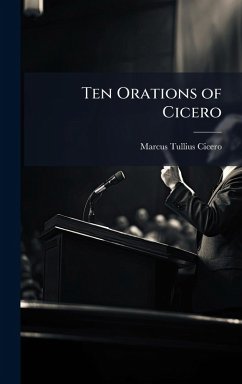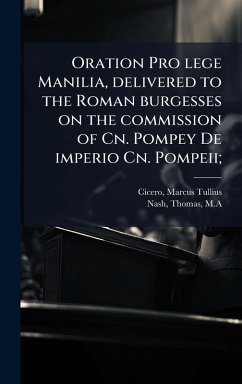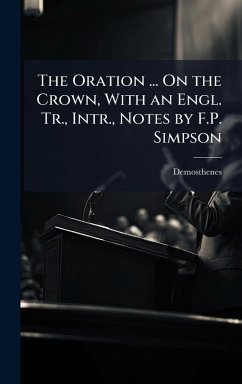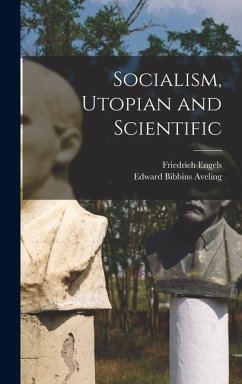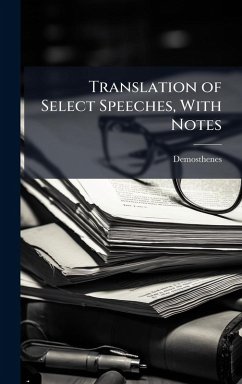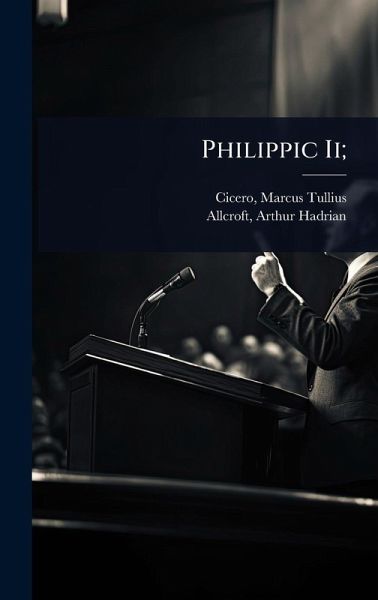
Philippic Ii;
Versandkostenfrei!
Versandfertig in über 4 Wochen
29,99 €
inkl. MwSt.
Weitere Ausgaben:

PAYBACK Punkte
15 °P sammeln!
Philippic II is a powerful and scathing oration by Marcus Tullius Cicero, one of the greatest Roman orators and statesmen. Delivered in 44 BC, this speech is a blistering attack on Mark Antony, whom Cicero considered a threat to the Roman Republic. In this philippic, Cicero accuses Antony of various misdeeds, including abuse of power, corruption, and tyrannical ambitions. The speech is a masterclass in rhetoric, employing sharp wit, biting sarcasm, and impassioned appeals to Roman values. Cicero's Philippics, inspired by Demosthenes's speeches against Philip II of Macedon, remain a testament t...
Philippic II is a powerful and scathing oration by Marcus Tullius Cicero, one of the greatest Roman orators and statesmen. Delivered in 44 BC, this speech is a blistering attack on Mark Antony, whom Cicero considered a threat to the Roman Republic. In this philippic, Cicero accuses Antony of various misdeeds, including abuse of power, corruption, and tyrannical ambitions. The speech is a masterclass in rhetoric, employing sharp wit, biting sarcasm, and impassioned appeals to Roman values. Cicero's Philippics, inspired by Demosthenes's speeches against Philip II of Macedon, remain a testament to the power of oratory in shaping political discourse. Philippic II offers invaluable insight into the tumultuous period following Julius Caesar's assassination and the struggle for power that ensued. This edition, intended for students, provides the Latin text and supporting material for a close reading of this important work. This work has been selected by scholars as being culturally important, and is part of the knowledge base of civilization as we know it. This work was reproduced from the original artifact, and remains as true to the original work as possible. Therefore, you will see the original copyright references, library stamps (as most of these works have been housed in our most important libraries around the world), and other notations in the work. This work is in the public domain in the United States of America, and possibly other nations. Within the United States, you may freely copy and distribute this work, as no entity (individual or corporate) has a copyright on the body of the work. As a reproduction of a historical artifact, this work may contain missing or blurred pages, poor pictures, errant marks, etc. Scholars believe, and we concur, that this work is important enough to be preserved, reproduced, and made generally available to the public. We appreciate your support of the preservation process, and thank you for being an important part of keeping this knowledge alive and relevant.



